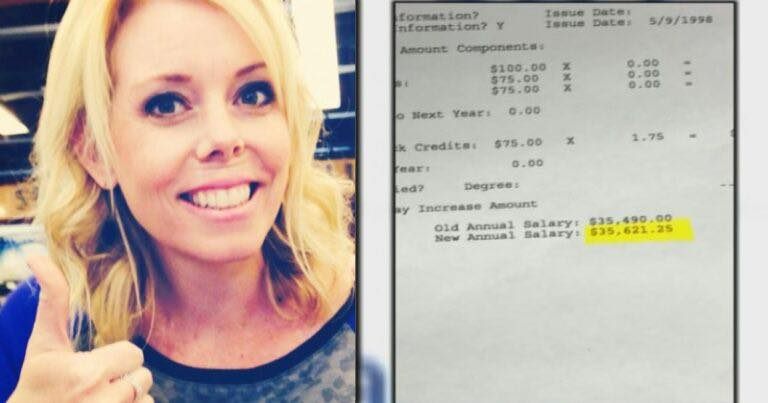Teacher strikes have become more frequent across the U.S., with educators fighting for better pay. One Arizona teacher, Elisabeth Coate Milich, took matters into her own hands by sharing her salary online, sparking outrage and debate.

Milich, a second-grade teacher at Whispering Wind Academy in Phoenix, did something many avoid—she publicly shared her pay stub. In a society where finances are rarely discussed openly, Milich’s bold move aimed to highlight the financial struggles of teachers. She wanted to reveal that, despite the years of education required to become a teacher, many of her colleagues do not make a livable wage.
Her Facebook post, which was later taken down due to negative responses, showed that she had only received a $131 raise over the course of a year, with her salary increasing from $35,490 to $35,621. “I actually laughed when I saw the old salary versus the new one,” Milich wrote in her post. “I need a college degree to make this? I knew I didn’t make much, but seeing it in black and white was shocking. I love teaching, but you just can’t live on this.”
Milich, who has been in the education field for years, debated whether or not to share her paycheck, according to CBS News. In the end, she felt it was important for people to see the reality of teaching salaries in her state. Unfortunately, Milich’s situation reflects a larger issue in Arizona, where teachers are some of the lowest-paid in the country.
While her salary of $35,621 is far below average, Arizona’s overall average teacher salary isn’t much better. According to the National Education Association (NEA), the average teacher salary in Arizona is $47,218—still significantly below the national average of $58,353. Even though these numbers paint a slightly better picture than Milich’s individual experience, Arizona teachers still earn far less compared to educators in other states.
Milich also emphasized another challenge teachers face: paying out of pocket for classroom supplies. She pointed out that many teachers like her buy items such as markers, tape, and other essential supplies without any reimbursement. On top of that, she is still paying off student loans more than 20 years after graduating from college.
Milich acknowledged that she is fortunate to have a second household income from her husband. Without that, she says, her financial situation would be much worse. “I know teachers who work three or four jobs just to make ends meet,” she shared. “They teach all day and then waitress at night. If you’re a single person trying to live on a teacher’s salary, it’s almost impossible.”
Her experience is backed by data. A 2017 study from Arizona State University’s Morrison Institute for Public Policy found that teacher recruitment and retention in Arizona are at “crisis” levels. The study revealed that 42% of teachers hired in 2013 left the profession within three years. Arizona’s elementary school teachers are also the lowest-paid in the country.
Milich’s story sheds light on the growing issue of teacher pay, a problem that is becoming increasingly unsustainable.





